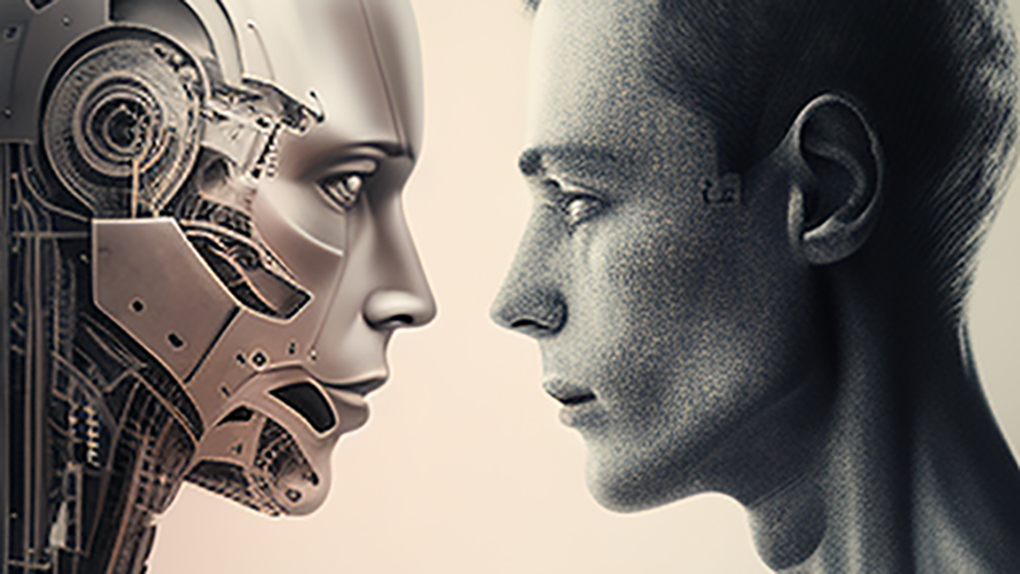Ai vs human branding
The decision between AI-driven branding and personal, human-driven branding depends on various factors, including the nature of the business, target audience, brand values, and the goals of the branding effort. Here’s a breakdown of both approaches:
AI-Driven Branding
AI can create content, design logos, and even manage social media at scale. This is particularly useful for large companies with extensive branding needs.
AI can analyze vast amounts of data to understand customer preferences, trends, and behaviors, leading to more targeted and effective branding strategies.
AI-driven platforms like Looka or Logojoy can create logos and branding materials by analyzing industry trends and user preferences.
AI can analyze customer data to create highly specific segments, allowing for personalized marketing messages at scale. Tools like HubSpot and Salesforce Einstein use AI to drive customer engagement.
AI ensures that branding elements are consistent across all platforms, maintaining a uniform brand identity.
Once set up, AI-driven branding can be more cost-effective than relying on human resources for every branding t
AI systems can inadvertently perpetuate biases present in the data they are trained on, leading to unfair or discriminatory practices. Ethical AI development is crucial.
Brands using AI must be transparent about when and how AI is used, ensuring customers are aware of AI-generated content versus human-created content.
Challenges
AI may lack the emotional depth and creativity that a human can bring to branding. This can result in a brand that feels impersonal or robotic.
While AI can generate ideas, it may struggle with innovative or out-of-the-box thinking that a human might bring.
There are concerns about the authenticity of AI-generated content and whether it resonates with consumers on a personal level.
Ai vs human Branding
Human-driven branding can tap into emotions, storytelling, and personal experiences, creating a deeper connection with the audience.
Humans can think creatively, coming up with unique ideas and strategies that may not be possible for AI.
As AI becomes more prevalent, there will be a counter-trend toward authenticity, with consumers valuing brands that maintain a human touch.
A personal approach to branding often feels more genuine and trustworthy, which can be important for building long-term relationships with customers.
Maintaining authenticity is key in personal branding. If customers perceive a brand as inauthentic or deceptive, it can lead to a loss of trust.
Smaller brands, especially those focused on local or niche markets, will continue to thrive by leveraging personal connections and community engagement.
Humans can quickly adapt to changes in the market, trends, or customer preferences, allowing for more flexible and responsive branding strategies.
Human-driven branding requires careful consideration of cultural differences and sensitivities to avoid offending or alienating any audience segment.
Challenges
Human-driven branding can be more challenging to scale, especially for larger businesses or those with a global presence.
Different human contributors may bring varying perspectives, leading to inconsistencies in the brand message.
Personal branding efforts often require more time, effort, and financial resources, especially if hiring specialists or creative professionals.
Key Considerations for Choosing Between Ai vs human Branding
- Business Size and Scale: Larger businesses with vast data and customer bases may benefit more from AI-driven branding. In contrast, smaller businesses might prioritize a personal touch.
- Industry: Certain industries, like tech or e-commerce, might lean towards AI for efficiency, while industries like luxury goods or artisanal products might emphasize personal branding.
- Customer Demographics: Younger, tech-savvy audiences may appreciate the efficiency and personalization AI can offer, while older or more traditional audiences may value human interaction more.
- Brand Values: If your brand is built around authenticity, craftsmanship, or personal stories, human-driven branding may be essential. If your brand is focused on innovation, speed, and cutting-edge technology, AI could align well with your values.
Ai vs human
- AI-driven branding is ideal for businesses that need scalability, consistency, and data-driven strategies. It’s particularly effective for larger companies or those with extensive digital marketing needs.
- Personal branding is better suited for businesses that prioritize emotional connections, authenticity, and creativity. It’s often more effective for smaller businesses, startups, or those in industries where personal relationships are crucial.
Many companies find a hybrid approach, combining AI for scalability and data analysis with human creativity and emotional intelligence, to be the most effective strategy.

